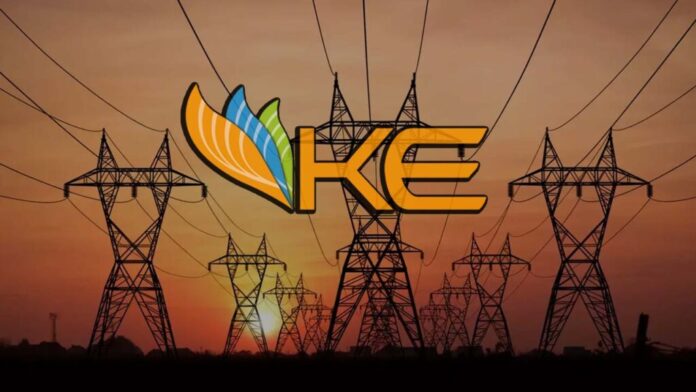ISLAMABAD:Saudi investor Prince Mansour bin Mohammed Al Saud has signed a landmark agreement to acquire a majority stake in K-Electric (KE), marking a significant new chapter in Saudi Arabia’s economic engagement with Pakistan’s energy sector.
The deal follows the withdrawal of Chinese firm Shanghai Electric Power from its long-delayed $1.77 billion acquisition plan due to alleged persistent regulatory hurdles and shifting business conditions.
The Memorandum of Understanding (MoU), signed by Prince Mansour and CEO AsiaPak Investments Shehryar Chishti at Sindh CM House on Thursday, represents the largest potential Saudi investment in Pakistan’s power industry to date. It signals Riyadh’s intent to play a direct role in the management and future strategic direction of K-Electric, the country’s only vertically integrated private power utility serving more than 3.4 million consumers in Karachi and adjoining areas.
The deal comes at a critical time as Pakistan seeks to attract foreign direct investment (FDI) to stabilize its energy supply, modernize infrastructure, and rebuild investor confidence amid a complex regulatory environment.
The leaderships of Pakistan and Saudi Arabia have endorsed the agreement and congratulated the parties involved hailed the transaction as a milestone in advancing Saudi-Pakistan business-to-business (B2B) cooperation, and highlighted it as an example of expanding Gulf investment in South Asia’s energy markets.
Earlier, Shanghai Electric Power, a subsidiary of the state-owned Shanghai Electric Group, had been pursuing the acquisition of 18.3 billion shares in K-Electric since 2016. The proposed deal, valued at $1.77 billion with an additional $270 million in performance-based bonuses tied to operational targets, faced multiple extensions and procedural delays caused by Pakistan’s regulatory bottlenecks and tariff disputes. On September 9, 2025, Shanghai Electric’s board formally voted to terminate and write off the acquisition after nearly nine years of stalled negotiations.
Industry sources said that Saudi Arabia’s entry into K-Electric comes at a time when Pakistan’s power sector is undergoing structural reform under International Monetary Fund (IMF) programs and government-led efforts to improve transparency and financial sustainability. The Saudi consortium’s move is seen as both a commercial investment and a strategic signal of confidence in Pakistan’s ongoing economic reforms.
K-Electric’s existing shareholders, which include Gulf-based investors, have long voiced frustration over regulatory delays, particularly in the determination of multi-year tariffs and the settlement of dues between KE, the government, and other power sector entities. The Saudi-led acquisition is expected to inject fresh capital and leadership focus aimed at resolving these longstanding challenges.
Prince Mansour bin Mohammed Al Saud’s participation underscores Saudi Arabia’s broader strategy of diversifying its foreign investments through the Vision 2030 initiative, which promotes global energy partnerships and private-sector-driven growth. The Kingdom has already ramped up investment activity across Pakistan’s mining, refinery, and energy transmission sectors, with the K-Electric acquisition adding a major urban utility to its expanding South Asian portfolio.
Shehryar Chishti, whose AsiaPak Investments holds a significant stake in KES Power, and in turn K-Electric, played a central role in structuring the agreement. Chishti described the deal as a “turning point for Pakistan’s power sector” that would unlock new opportunities for modernization, technology transfer, and institutional governance. Both parties emphasized their intention to strengthen K-Electric’s operational efficiency, renewable integration, and customer service delivery under the new ownership structure.
The endorsement by the leadership of both the countries signals growing geopolitical and commercial alignment between the two countries, particularly in the energy domain, which has been a cornerstone of their relationship for decades, said industry sources.
K-Electric, originally nationalized in the 1950s and privatized in 2005, has undergone multiple ownership changes but continues to face operational and regulatory challenges tied to Pakistan’s broader energy sector complexities. The Saudi investment could mark a turning point by introducing new management expertise, financial discipline, and an expanded regional partnership network.
According to industry sources, Saudi investors are expected to focus on strengthening K-Electric’s financial health, improving grid reliability, and exploring renewable integration to align with Saudi Arabia’s global sustainability goals. The partnership could also pave the way for broader Saudi participation in Pakistan’s privatization and infrastructure investment programs.
It is worth mentioning here that with this acquisition, Riyadh reinforces its status as one of Islamabad’s most important strategic and economic partners. The transaction not only cements Saudi Arabia’s growing presence in Pakistan’s energy landscape but also sends a strong signal to global investors about renewed confidence in the country’s regulatory and financial reforms.




